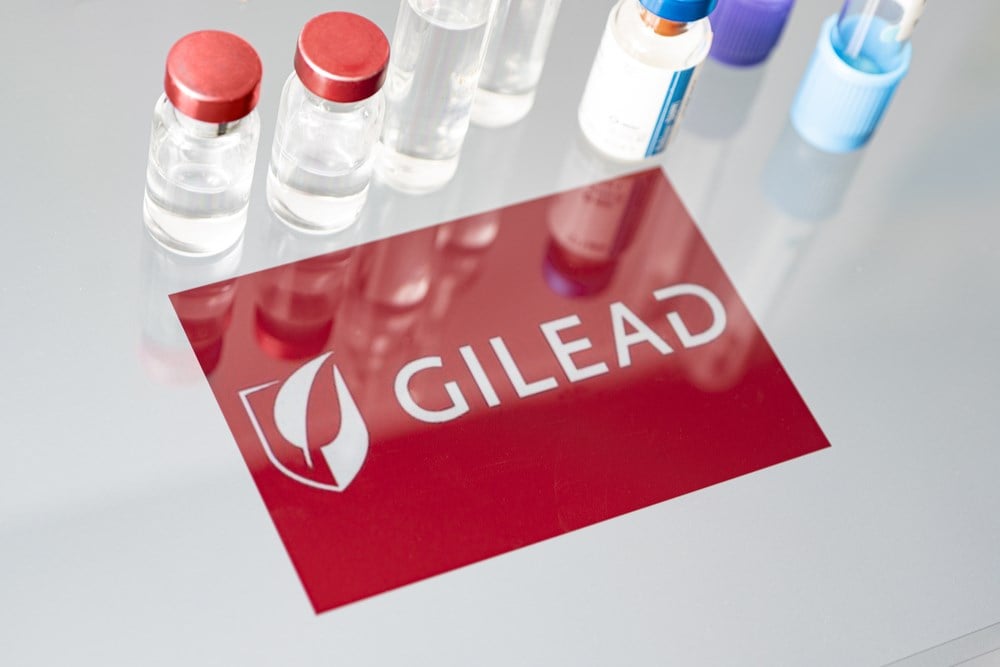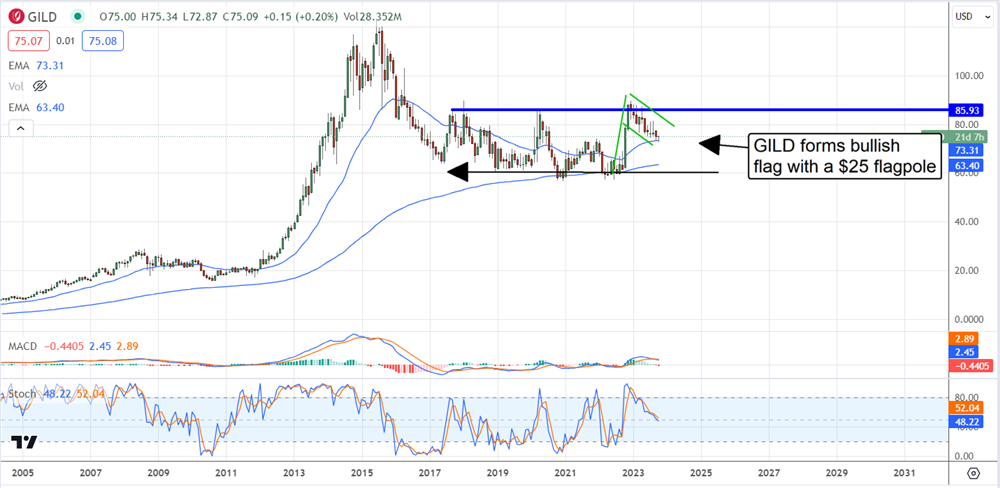
Shares of Gilead Sciences (NASDAQ: GILD) are down roughly 20% from their highs in 2023 and, like other stocks in correction this year, are showing signs of a bottom. The price pressure in 2023 is due primarily to the COVID-19 cliff; Gilead’s business saw a significant spike in revenue and earnings due to its COVID-19 treatment Veklury AKA remdesivir. Sales of the anti-viral treatment were strongest in the early days of the pandemic but have flagged due to the widening use of vaccines and other treatments.
The takeaways for investors today are that the core business is growing, the pipeline is robust, the stock provides value, the dividend is attractive, and the analysts like the stock: nothing to see here but a good buy with double-digit upside potential.
Gilead: Soft Guidance No Reason To Avoid This Stock
Gilead issued softer-than-expected profit guidance for 2023 with the Q3 release, but that is a misleading detail. The company issued softer-than-expected profit guidance, still expecting a widening margin this year and next. The company expects revenue to fall by low-single-digits in Q4 but for earnings to grow sequentially and YOY to further strengthen its financial position.
Next year, revenue is expected to grow by low single digits and earnings by high, with stronger results at the core level. Core results, ex-remdesivir, are growing by double-digits, with notable strength in the oncology and hematology segments.
Gilead’s pipeline is robust, with more than 20 treatments in phase-3 trials or with applications submitted. This is the strongest pipeline in the company’s history and is on track to deliver numerous new marketable treatments in all core segments over the next few years. This is significant because other major pharma companies face patent cliffs that will cut deeply into their revenue and profits; not all have a strong pipeline to rely on.
Analysts and Institutions are Buying Gilead
Analysts and institutions are buying Gilead this year. The institutions own about 80% of the company and have bought on balance for 5 consecutive quarters. Likewise, the analysts rate this stock a Moderate Buy with a price target 20% above the recent price action. The Marketbeat.com analysts' consensus is up 21% compared to last year versus the 20% decline in the stock price, suggesting a significant disconnect in the valuation and opportunity for investors.
The most recent analyst activity is an upgrade from Bank of America. Bank of America analyst Geoff Meacham upped the stock to Buy from Neutral, citing the expanding pipeline and accelerating growth trajectory. He specifically calls out the oncology and hematology segments as growth vectors and thinks the stock is oversold, trading at 11X earnings compared to 16X for peers. He does not mention the company’s healthy 4.0% dividend yield and outlook for distribution growth.
Gilead Pays Solid Dividends and has a Healthy Balance Sheet
Gilead pays a solid dividend with a 4% yield, which is noteworthy because it is the highest among peers, many of whom pay 0.0%. The payout is less than 50% of earnings, so it is reasonably safe, and there is a history of distribution growth. The company has increased for 8 consecutive years at 6% CAGR and should be able to continue that pace for the foreseeable future. Regarding the balance sheet, the cash position is solid at $8 billion and up YOY, while long-term debt leverage remains low at 1.3X shareholders equity.
The Technical Outlook: A Bullish Flag Pattern for Gilead
The technical picture for Gilead stock is best viewed with monthly candles. This view shows the stock trading within a long-term trading range and a bullish Flag Pattern within that range. The pattern began in October 2022 after the company’s expanding pipeline began to show promise and formed a flagpole moving from the bottom to the top of the range within 2 months.
Since then, the market has corrected to form the Flag portion of the Flag Pattern and is sitting on critical support. That level is consistent with the middle of the range and the 30-month EMA, which emerged as a bullish pivot point for the market late in 2020. Assuming the market follows through on this signal, it should rally back to the top of the range and form fresh highs before the end of next year.






